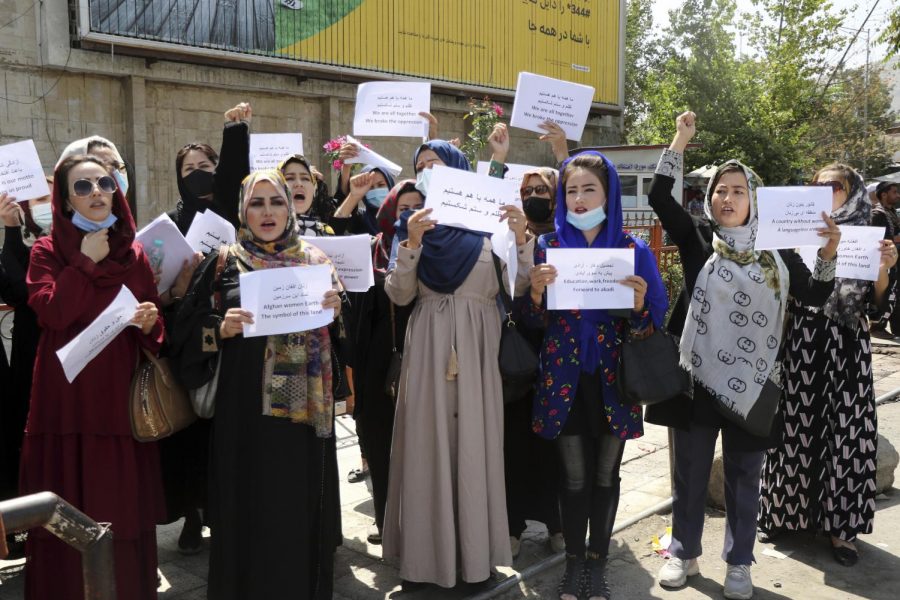State of Afghanistan uncertain amidst regime change
Women gather to demand their rights under the Taliban rule during a protest in Kabul, Afghanistan, Friday, Sept. 3, 2021. (AP Photo/Wali Sabawoon)
Sep 17, 2021
The twenty year battle between the United States and the Taliban ended with the withdrawal of U.S. troops from the country and the Taliban take-over of the Afghan government.
According to AP News, Sirajuddin Haqqani was selected for the key post of interior minister of the new government. Haqqani is currently on the FBI’s Most Wanted List with a $5 million bounty attached to his name. Haqqani and his followers have been accused of a variety of attacks and kidnappings.
An article by BBC News reported that the Taliban’s Cabinet consists of all males. Some of these men are senior Taliban members who are notorious for attacks on U.S. forces and troops over the last two decades. The Cabinet will be led by Mullah Mohammad Hassan Akhund, one of the movement’s founders and who is on a UN blacklist.
Asked about the Cabinet’s lack of gender inclusivity, Senior Matthew J. Meyer, the president of JCU’s Student Government, said, “Diversity in leadership is an invaluable asset, as allowing for members of all demographics, and in this case, women, to take charge in leadership decisions would aid to advance justice goals, such as feminism and other forms of egalitarianism, that we hold so dearly in Western culture.”
Democracy has honored the process of electing its leaders into power. However, the Taliban hasn’t given any indication that they will host elections, which will disconnect the citizens from their government. There have already been protests in Afghanistan against this new government that have ended in gunfire and arrests.
When asked what the fundamentals of government are, Meyer responded, “The most essential aspects of a government are an established bond of trust between the government and its constituents, that the elected leadership will act in a manner that serves the best interests of every member, especially those which are most vulnerable in its environment.”
Many countries in the world are worried that terrorism is going to increase under the Taliban’s regime. AP News reported that the U.S. State Department released a statement saying, “The world is watching closely.”
The statement is quite short, but the meaning behind it is not to be taken lightly, especially since the Taliban’s new government is removing the citizens’ right to vote and speak their minds.
Meyer stated, “The primary message I would like readers to take away from the ongoing story in Afghanistan is to appreciate the values that our Western culture has established, which bolsters the freedom of speech and expression, which allows for vulnerable populations to have their voices heard, and their needs attended to.”
As the Taliban continues to grow their government, the U.S. and the rest of the world, wait with an anxious impatience to see what will happen in the coming months.













